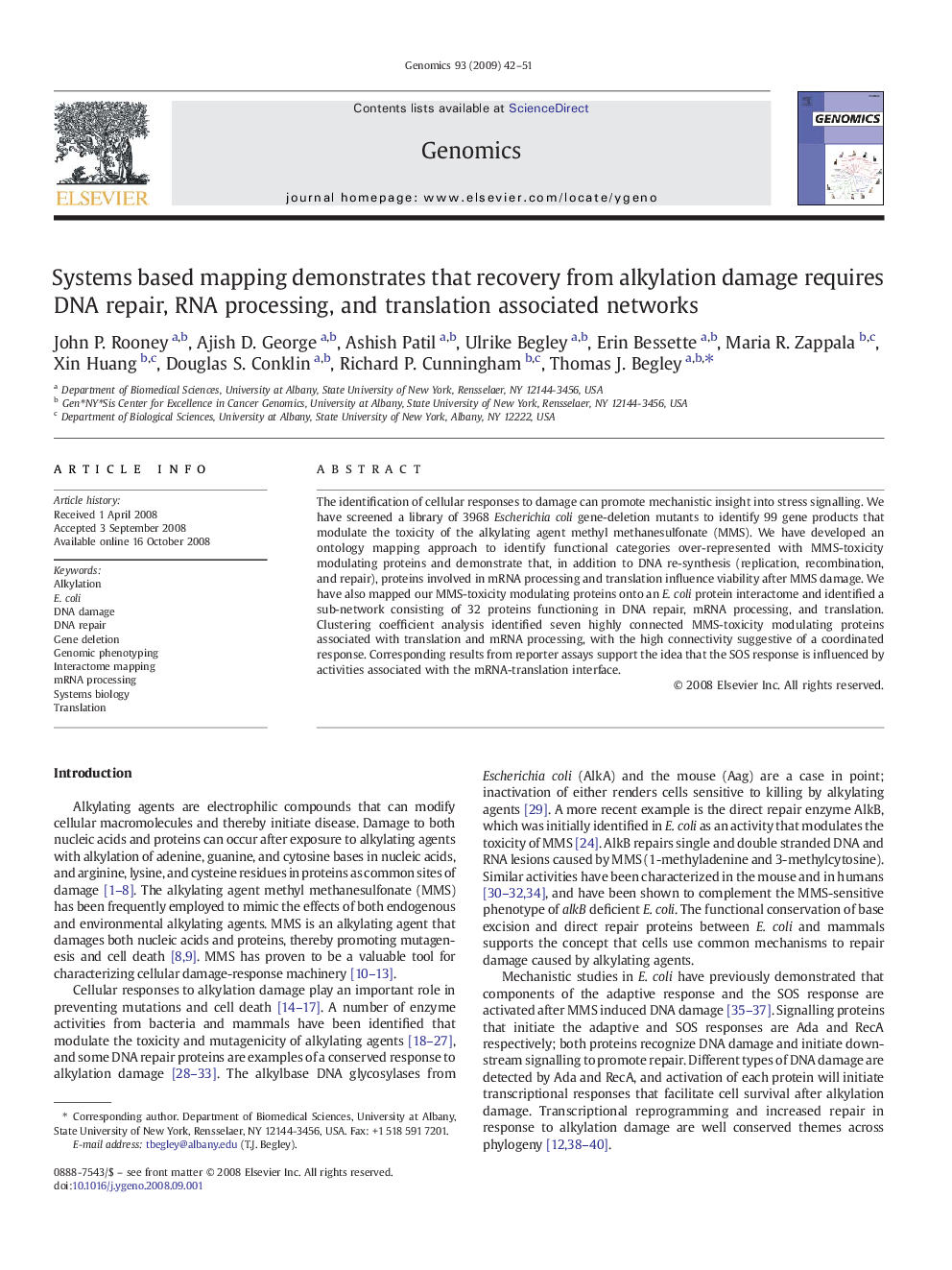| Article ID | Journal | Published Year | Pages | File Type |
|---|---|---|---|---|
| 2821647 | Genomics | 2009 | 10 Pages |
The identification of cellular responses to damage can promote mechanistic insight into stress signalling. We have screened a library of 3968 Escherichia coli gene-deletion mutants to identify 99 gene products that modulate the toxicity of the alkylating agent methyl methanesulfonate (MMS). We have developed an ontology mapping approach to identify functional categories over-represented with MMS-toxicity modulating proteins and demonstrate that, in addition to DNA re-synthesis (replication, recombination, and repair), proteins involved in mRNA processing and translation influence viability after MMS damage. We have also mapped our MMS-toxicity modulating proteins onto an E. coli protein interactome and identified a sub-network consisting of 32 proteins functioning in DNA repair, mRNA processing, and translation. Clustering coefficient analysis identified seven highly connected MMS-toxicity modulating proteins associated with translation and mRNA processing, with the high connectivity suggestive of a coordinated response. Corresponding results from reporter assays support the idea that the SOS response is influenced by activities associated with the mRNA-translation interface.
